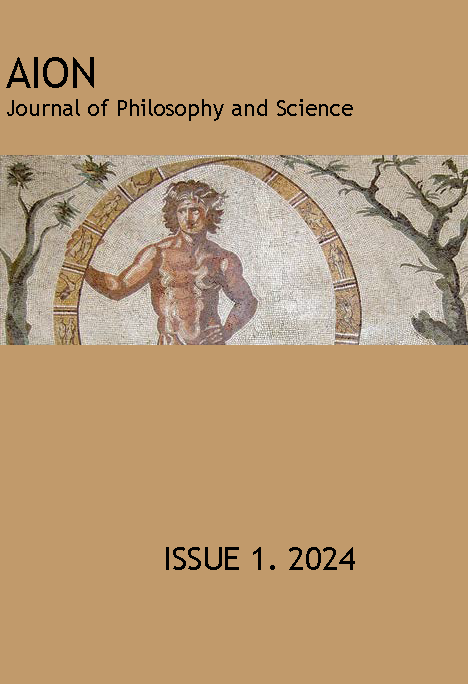All You Need is Recalcitrance; A Stengerian Fable for Psychology
DOI:
https://doi.org/10.17161/aion.v1i1.22304Palavras-chave:
epistemic resistance, objection, speculative fabulation, psychotherapyResumo
Recalcitrance is a form of resistance particularly relevant to human sciences. This essay explores how Isabelle Stengers outlined this topic from a critical reading of certain experiments in the history of psychology. Since living beings cannot remain indifferent to the proofs and interrogations they are submitted, scientists must remain attentive to avoid the frequent feature of pliability by which the studied subject adapts its behavior to satisfy the experimenter’s expectations. Further developments have proposed this concept as a demarcation criterion for good and bad experiments for psychology. The second half of the essay offers an auto-ethnographic account of my own clinician practice. From a series of empirical vignettes, a speculative fabulation is woven to explore whether Stenger’s thesis on recalcitrance could and/or should be implemented in psychotherapy.
Referências
Benbaji, H. (2013). How is Recalcitrant Emotion Possible? Australasian Journal of Philosophy, 91(3), 577–599.
Bloor, D. (2001). Wittgenstein and the priority of practice. In The Practice Turn in Contemporary Theory (103-114). London: Routledge.
Burdman, F. (2024). Recalcitrant Desires in Addiction. In Oxford Studies in Agency and Responsibility Vol 8 (58-80). Oxford: Oxford University Press.
Burroughs, W. (1986). The Limits of Control. In The Adding Machine (116-119). New York: Seaver Books.
D’Arms, J. & Jacobson, D. (2003). The Significance of Recalcitrant Emotion (127–45). In Philosophy and the Emotions. Cambridge: Cambridge University Press.
Danziger, K. (2003). Where History, Theory, and Philosophy Meet. The Biography of Psychological Objects. In About Psychology. Essays at the Crossroads of History, Theory, and Philosophy (19-34). Albany: State University of New York Press.
Despret, V. (2004). The Body We Care For: Figures of Anthropo-zoo-genesis. Body & Society 10(2-3), 111-134.
Despret, V. (2008). The Becomings of Subjectivity in Animal Worlds. Subjectivity, 23, 123-139.
Despret, V. (2012). En finir avec l'innocence. Dialogue avec Isabelle Stengers et Donna Haraway. In Penser avec Donna Haraway (23-45). Paris: Presses Universitaires de France.
Döring, S. (2015). What’s Wrong With Recalcitrant Emotions. Dialectica, 69(3), 381-402.
Freud, S. (1895). Project for a Scientific Psychology. In The Standard Edition of the Complete Psychological Works of Sigmund Freud Vol I (203-398). London: Hogarth Press.
Foucault, M. (1977). Discipline and Punishment. New York: Vintage Books.
Hanna, P. (2014). Foucauldian Discourse Analysis in Psychology: Reflecting on a Hybrid Reading of Foucault When Researching “Ethical Subjects”. Qualitative Research in Psychology, 11(2), 142-159.
Haraway, D. (2016). Staying with the Trouble. Durham: Duke University Press.
Hook, D. (2003). Analogues of Power: Reading Psychotherapy through the Sovereignty–Discipline–Government Complex. Theory & Psychology, 13, 605–28.
Hutchinson, P. (2020). The “placebo” paradox and the emotion paradox: Challenges to psychological explanation. Theory & Psychology, 30(5), 617-637.
Latour, B. (1987). Science in Action. Cambridge: Harvard University Press.
Latour, B. (2004). How to Talk About the Body? The Normative Dimension of Science Studies. Body & Society 10(2-3), 205-229.
Latour, B. (2006). Des sujets récalcitrants. In Chroniques d'un amateur de sciences (187-9). Paris: Presses des Mines.
Latour, B. (2010). On the Modern Cult of the Factish Gods. Durham: Duke University Press.
Latour, B. (2013). An Inquiry Into Modes of Existence. Cambridge: Harvard University Press.
Nathan, T. & Stengers, I. (2018). Doctors and Healers. London: Polity Press.
Pignarre, P. (2021). Latour-Stengers. An Entangled Flight. London: Polity Press.
Roberts, E. (1973). Predicting the storage life of seeds. Seed Science and Technology, 1, 499-514.
Savransky, M. (2013). Of Recalcitrant Subjects. Culture, Theory and Critique, 55(1), 96–113.
Schwartz, H. (1976). On Recognizing Mistakes: A Case of Practical Reasoning in Psychotherapy. Philosophy of the Social Sciences, 6(1), 55–73.
Serres, M. (1995). The Natural Contract. Ann Arbor: University of Michigan Press.
Stengers, I. (1997). Power and Invention. Minneapolis: University of Minnesota Press.
Stengers, I. (2000). The Invention of Modern Science. Minneapolis: University of Minnesota Press.
Stengers, I. (2011). Cosmopolitics II. University of Minnesota Press.
Stengers, I. and Ralet, O. (1991). Drogues. Paris: Éditions La Découverte.
Thorsen, L. M., & Jensen, C. B. (2018). Reclaiming Imagination: Speculative SF as an Art of Consequences: An Interview with Isabelle Stengers. NatureCulture 5, 1-18.
Varga, S. & Steglich‐Petersen, A. (2023). On the roles of false belief and recalcitrant fear in anorexia nervosa. Mind & Language, 38(5), 1-18.
Downloads
Publicado
Edição
Seção
Licença
Copyright (c) 2024 David Antolínez

Este trabalho está licenciado sob uma licença Creative Commons Attribution-NonCommercial-NoDerivatives 4.0 International License.

Copyright is held by the authors. This work is licensed under a Creative Commons Attribution-NonCommercial-NoDerivatives 4.0 International License
.


